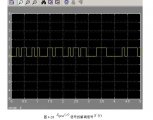QPSK通信系统的设计与仿真
来源:56doc.com 资料编号:5D19072 资料等级:★★★★★ %E8%B5%84%E6%96%99%E7%BC%96%E5%8F%B7%EF%BC%9A5D19072
资料以网页介绍的为准,下载后不会有水印.资料仅供学习参考之用. 密 保 惠 帮助
资料介绍
QPSK通信系统的设计与仿真(课题说明书,开题报告,中期检查表,论文10000字)
摘 要 本文简介了QPSK技术的发展历史,从电报的发明到现代通信中所应有的现代技术都是人类文明的进步。本文借助MATLAB的SIMULINK模块的模拟仿真功能来编写程序,对QPSK通信系统的信号收发实现过程进行了模拟仿真,模拟了调制和解调的过程,根据实验结果绘制出了信号传输时的时域图,针对各模块功能,分析所得图与理论图异同,若所得结果与理论基本相符,则方式可行。通过MATLAB进行仿真测可行性,可以通过更加经济合理有效的方式来为以后的应用打好基础,为QPSK的进一步发展做好踏板,可带来更加实惠的便利。
关键词 QPSK; 调制; 解调; SIMULINK
Design and Simulation of QPSK Communication System
Abstract This paper briefly introduces the development history of QPSK technology. From the invention of telegraph to the modern technology in modern communication, it is the progress of human civilization. With the help of the simulation function of SIMULINK module of MATLAB, this paper compiles a program to simulate the signal receiving and receiving process of QPSK communication system, simulates the process of modulation and demodulation, draws the time-domain diagram of signal transmission according to the experimental results, and analyses the similarities and differences between the diagram and the theoretical diagram, if the results are basically consistent with the theory, then the method is adopted. Feasible. The feasibility of simulation test by MATLAB can lay a good foundation for future application through more economical, reasonable and effective way, and make a good pedal for the further development of QPSK, which can bring more affordable convenience.
Key words QPSK; modulation; demodulation,; SIMULINK
主要研究工作
本次实验来模拟QPSK发射接收信号过程,借助MATLAB软件的SIMULINK仿真功能[2]得以实现。具体内容有:
1.研究QPSK的调制和解调基本原理。
2.根据数据图分析QPSK的调制解调的过程对错。
3.设计出一个以SIMULINK模块为主要部件来设计QPSK的调制和解调的仿真模型。
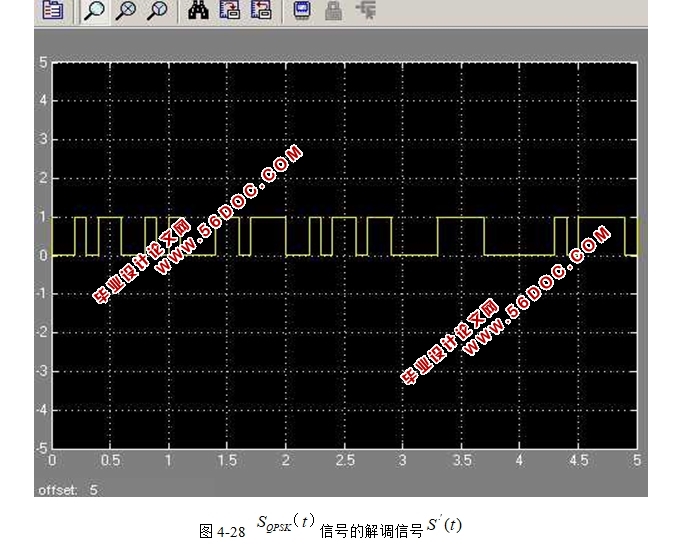
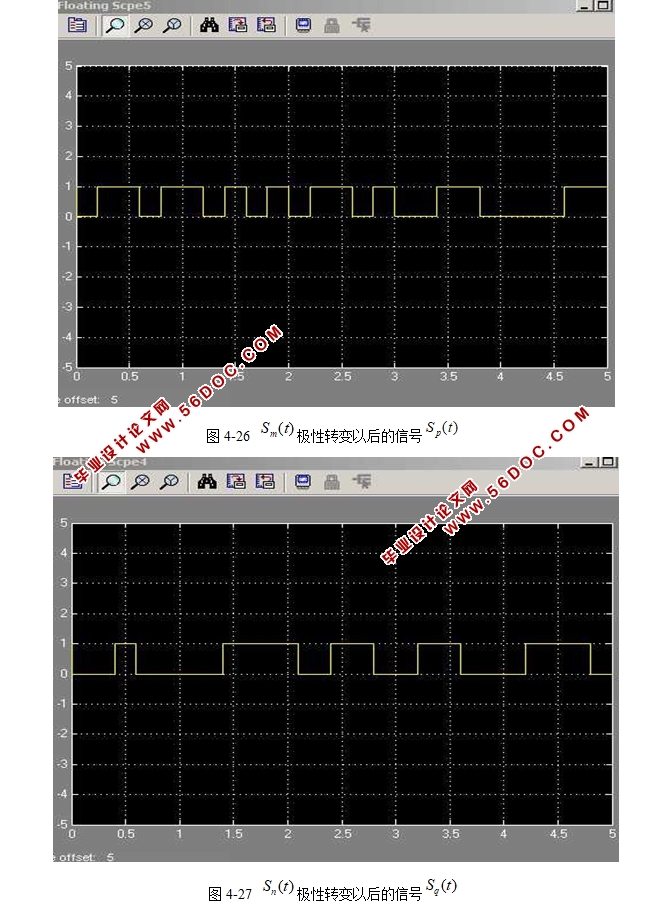
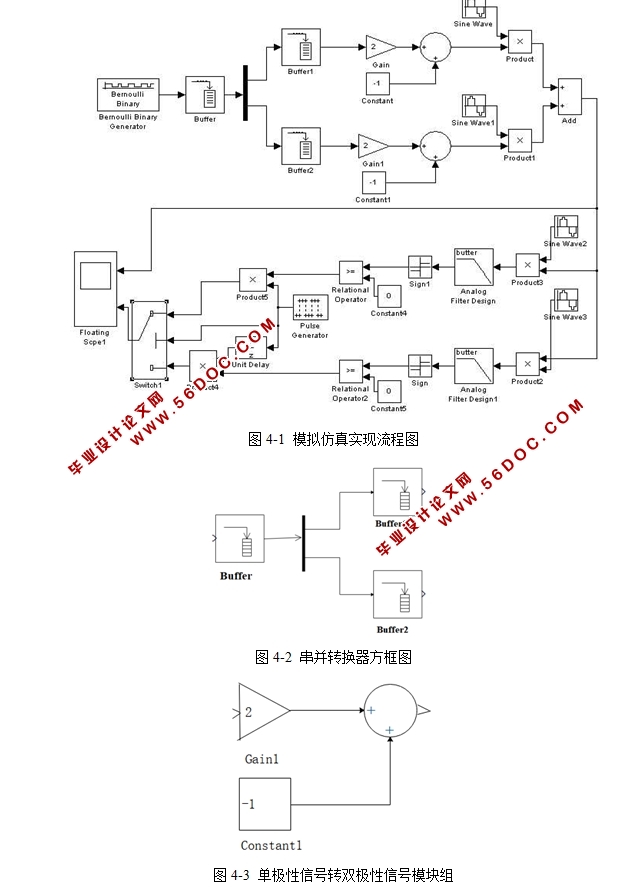
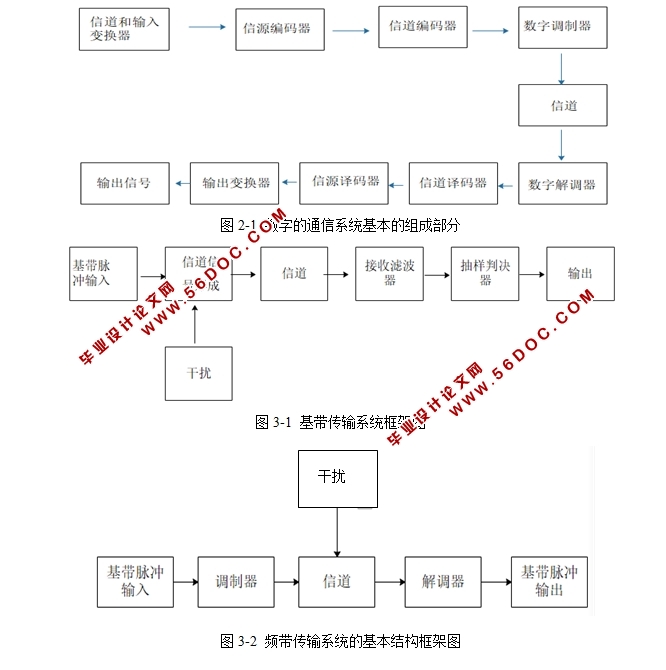
目 录
摘要及关键词 1
1绪论 1
1.1 选题原因及发展前景 1
1.2 主要研究工作 1
2数字通信技术简介 2
2.1 引述 2
2.2 数字通信发展史概述 2
2.3 概念、基本组成 2
2.4 数字通信优缺点 3
3 调制与解调概述 4
3.1 概述 4
3.2 基带传输系统 4
3.3正弦载波数字调制系统 5
3.4 QPSK的大致概述 5
3.5 QPSK的调制和解调原理理论 6
4QPSK调制与解调所用软件的实现 10
4.1 SIMULINK的概述 10
4.2 SIMULINK的功能特点 10
4.3 QPSK调制解调的软件设计方案 10
4.4 QPSK调制与解调仿真的总体过程 13
4.5 仿真过程正确性的验证 25
5 结论 26
参考文献 27
致谢 28
|
